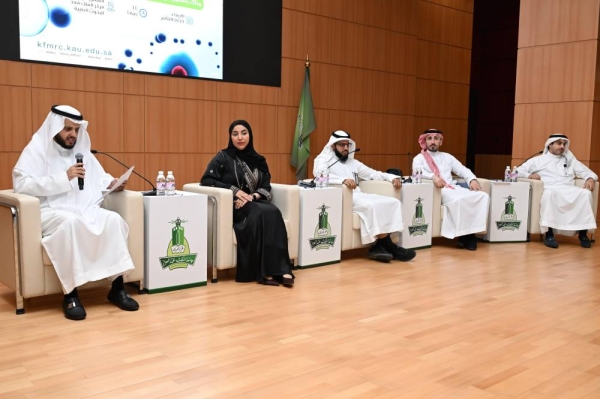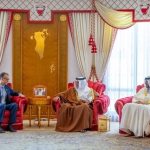The second edition of the Stem Cell Scientific Forum was recently launched by King Abdulaziz University in Jeddah, under the patronage of Dr. Tareef Alaama, President of the University. The forum aimed to raise awareness about the advanced applications of stem cells in various fields, including ophthalmology, storage of HLA-dependent induced pluripotent stem cells (iPSCs), and progress in embryonic research on spinal muscular atrophy. Professor Saleh Al-Kareem, head of the Stem Cell Unit, emphasized the importance of donating stem cells to save the lives of patients suffering from serious conditions such as blood cancers, immune disorders, and genetic diseases. He also highlighted the significant strides made by the university’s Stem Cell Research Unit in developing specialized expertise in various stem cell fields.
The process of donating stem cells involves collecting information from volunteers for future contact in case of compatibility with patients in need. Al-Kareem assured that there are no risks to the donor, as modern technologies used to collect stem cells are entirely safe. The university’s Stem Cell Research Unit was the first institution in the Kingdom to establish a human mesenchymal stem cell line from the placenta of Saudi women, securing intellectual property rights under the name ‘Cell Line SKGh’. The unit has also played a pivotal role in creating suitable conditions for stem cell cultivation at the King Fahd Medical Research Center and supervising master’s and doctoral theses for various departments at the university.
Graduates from King Abdulaziz University have emerged as scientific leaders in the field of stem cell research. Several international PhD graduates from the university are now working at prestigious institutions such as MIT, the University of New Mexico in the US, and Shantou University in China. Moreover, some PhD graduates from the Faculty of Science at the university are now professors at Saudi universities specializing in stem cell research. The unit offers research and training opportunities in the latest stem cell fields, including embryonic stem cells, cancer stem cells, exosomes, and therapeutic applications at both the cellular implantation stage and the animal model stage.
The forum organized by King Abdulaziz University aimed to highlight the importance of stem cell research and raise awareness about the potential of stem cells in treating various medical conditions. The three scientific sessions discussed advanced applications of stem cells in ophthalmology, storage of HLA-dependent induced pluripotent stem cells (iPSCs) in Saudi Arabia, and progress in embryonic research on spinal muscular atrophy. Professor Saleh Al-Kareem, head of the Stem Cell Unit, emphasized the role of the forum in registering volunteers interested in donating stem cells and potentially saving the lives of patients in urgent need.
The university’s Stem Cell Research Unit has made significant progress in developing expertise in various stem cell fields and establishing a human mesenchymal stem cell line from the placenta of Saudi women. The unit has also created suitable conditions for stem cell cultivation at the King Fahd Medical Research Center and supervises research theses for various departments at the university. Graduates from King Abdulaziz University have become scientific leaders in stem cell research, with many working at prestigious institutions and universities around the world. The unit offers research and training opportunities in cutting-edge stem cell fields, including embryonic stem cells, cancer stem cells, exosomes, and therapeutic applications.
By organizing the Stem Cell Scientific Forum and highlighting the importance of stem cell research, King Abdulaziz University aims to showcase its advancements in the field and encourage further research and collaboration in the study of stem cells. The forum provided a platform for discussing the latest developments and applications of stem cells in various medical fields, highlighting the potential benefits of stem cell donation and research. With its pioneering research and training opportunities, the university’s Stem Cell Research Unit continues to play a crucial role in advancing stem cell research and creating scientific leaders in the field.










